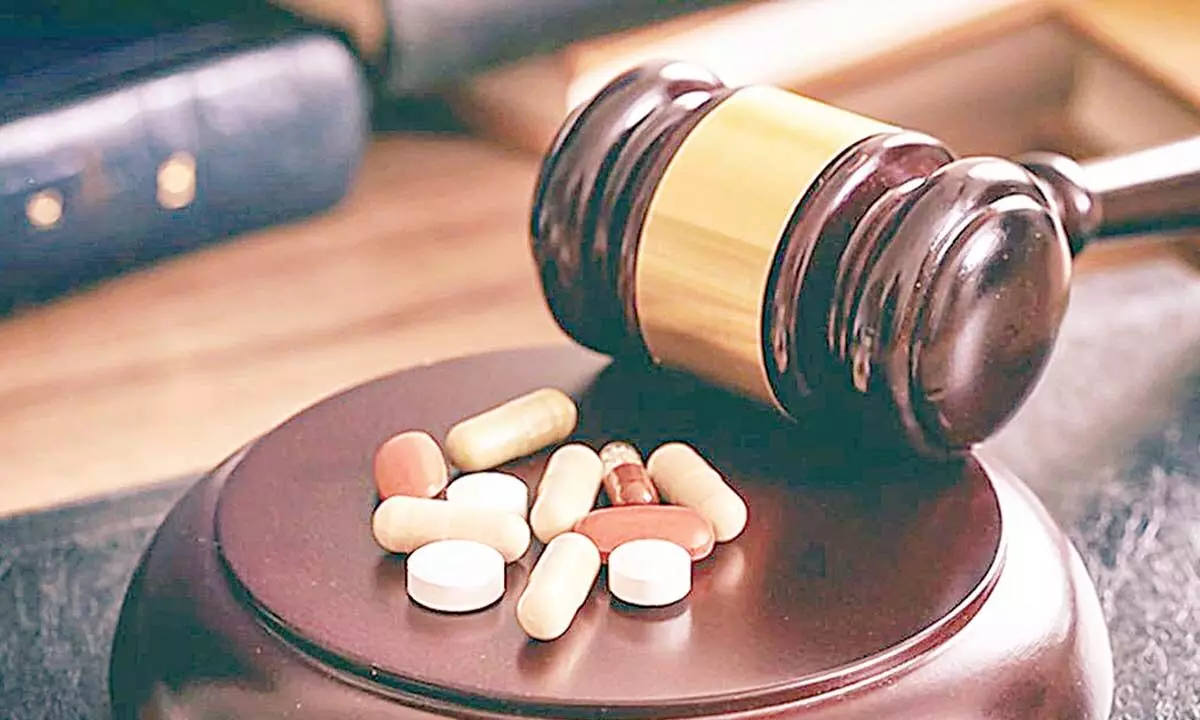10% tax on freebies by pharma companies will act as a deterrent
Now, doctors liable to pay 10% TDS on free medical samples, gifts if the value of the item is over Rs 20,000
image for illustrative purpose

The new guideline issued recently by the Central Board of Direct Taxes (CBDT) is creating anguish among the doctors' community as well as the pharmaceutical industry in the country. According to the new guidelines issued by the CBDT, from July 1, 2022, doctors are required to pay 10 per cent tax deducted at source (TDS) on freebies given to them such as free samples if the value of the gift is over Rs 20,000. In case the doctor is an employee of a hospital, the hospital will have to pay the TDS.
According to the CBDT guideline, the hospitals can also put the TDS down on the said doctor's salary as expenditure. Further, TDS also includes perquisites in cash or in kind such as cars, electronics and so on. The new guidelines are a part of the Finance Act, 2020 to widen the tax base and ensure that the people who are benefiting from sales promotions report the same in their tax returns and pay 10 per cent TDS on what the benefit is worth. The government has amended the Finance Act, 2022 to accommodate the same, by including Clause 58, which seeks to insert Section 194R in the Act. Obviously, the imposition of 10 per cent TDS on free medical samples has irked the medical professionals as they fear that the Finance Ministry's decision will lead to stoppage of free samples to them who used to provide them to indigent patients.
Earlier in the Union Budget for 2022-23, the Union Finance Ministry, in a major setback to the pharmaceutical companies in the country, had decided to bring gifts and other freebies given to the doctors by pharmaceutical companies under the ambit of taxation. The Finance Bill, 2022 clarified that the gifts and freebies to doctors shall not be treated as business expenditure under section 37 of the Income Tax Act, 1961.
According to the Finance Bill 2022, pharma companies can no longer claim a business deduction for the gifts they provide to doctors that include foreign trips. The Explanatory Memorandum to the Bill says, "Thus, the legal position is clear that the claim of any expense incurred in providing various benefits in violation of the provisions of Indian Medical Council (Professional Conduct, Etiquette and Ethics) Regulations, 2002 shall be inadmissible under section sub-section (1) of section 37 of Act being an expense prohibited by the law". Under the Indian Medical Council (Professional conduct, Etiquette and Ethics), Regulations 2002, as well as under clause 7.2 of the UCPMP, offering inducements to doctors in the form of honorariums for participation in conferences, travel assistance, accommodation, food expenses, all of which are strictly prohibited.
But it is now not a secret that pharma companies continue to flout these rules with impunity to promote their business as these rules are presently voluntary in nature. There is no doubt that the pharmaceutical companies in the country continue to bribe doctors to prescribe their medicines. These companies continue to bribe the doctors with expensive gifts such as sponsored foreign trips, microwave ovens, smartphones, jewellery items, etc to prescribe their medicines. Hardly 10-20 per cent of doctors follow the Medical Council of India's code of ethics, while the rest accept or even demand incentives to prescribe products of a particular company. The most common inducement to the doctors is the sponsoring them for conferences, especially international conferences. These conferences are just an alibi, as in effect these are sponsored foreign tour packages. It is true that free drug samples encourage doctors to use new medicines that could be superior to existing drugs, and it could benefit poor and needy patients who could not otherwise afford the drug.
Free drug samples assist physicians find the best drug for their patients. Imposition of 10 per cent TDS on free drug samples distributed to doctors by pharma companies can be weighed against its positive effect on poor patients' outcomes. The imposition of TDS will prompt drug companies to cease distribution of free samples to doctors. But, the fact remains that by bringing the gifts and other freebies given to the doctors by pharmaceutical companies under the ambit of taxation cannot be a solution to end the unethical practice of bribing doctors to prescribe medicines.
The fact is that the issue is far from over as unethical promotion of medicines by pharmaceutical companies is still a matter of serious concern. Promotion of medicines by way of direct cash payments, sponsoring of pleasure trips and other incentives to physicians constitute more than 20 per cent of the price of medicines. The need to eliminate such avoidable costs on medicines is extremely relevant even today as the prices of most of the essential medicines are beyond the reach of common man. At the most, 10 per cent tax on freebies will act as a deterrent.
(The author is freelance journalist with varied experience in different fields)

